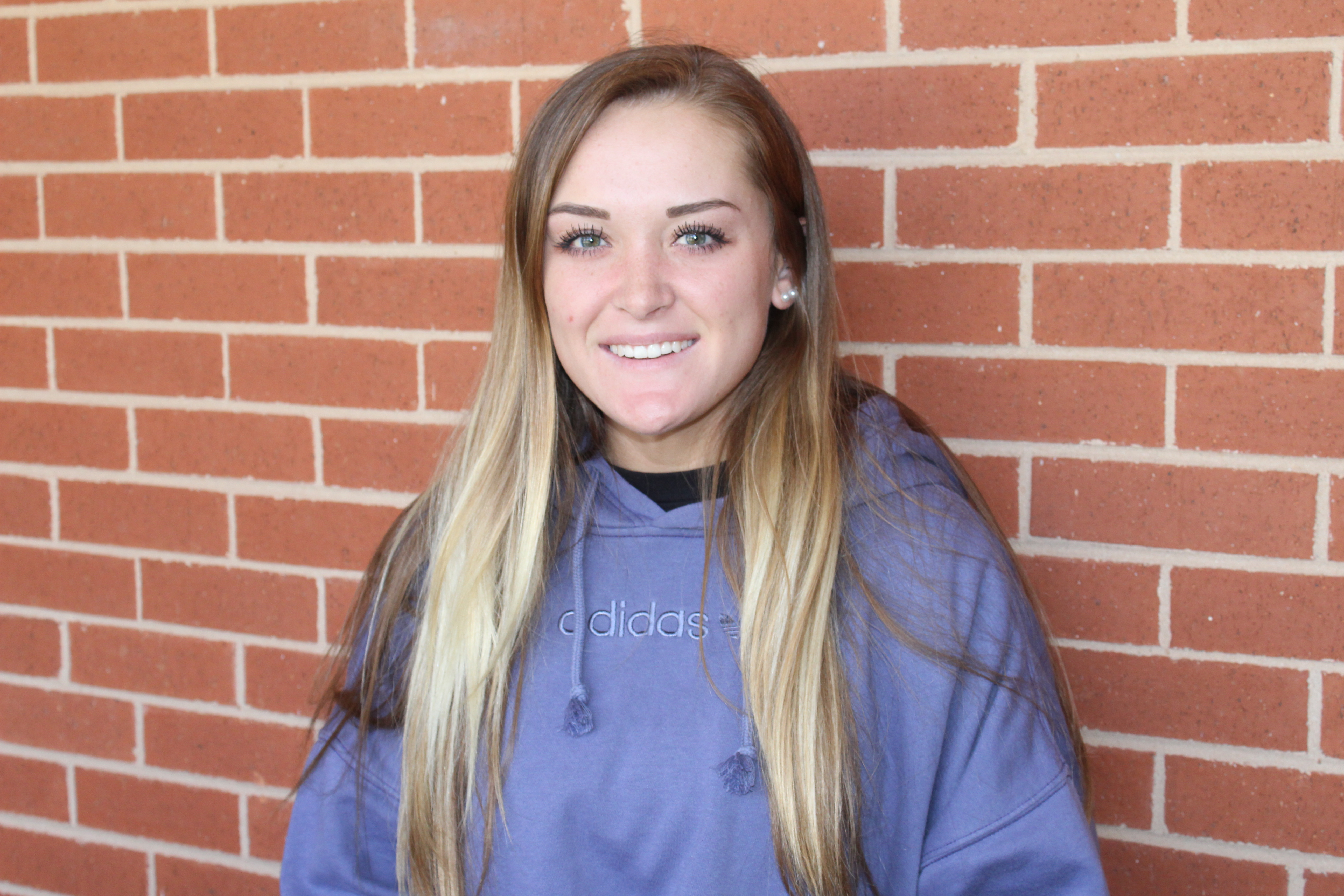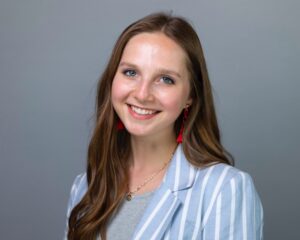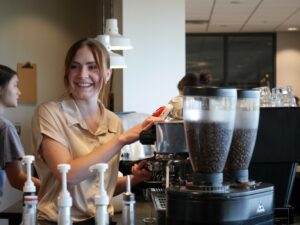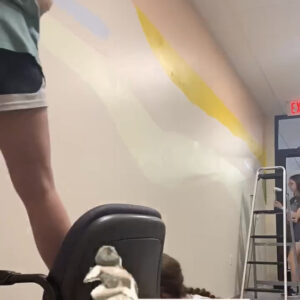The Talon staff sat down with junior Sydni Lehr, a current Oklahoma Christian University student and advocate for eating disorder awareness, to discuss her personal experiences with an eating disorder and bringing awareness to campus.
Q. Would you mind sharing a little bit of your personal experience with an eating disorder with us?
“It started my senior year of high school. I started becoming pretty obsessive over my diet and my exercise routine and all of those things. Unfortunately, it became too obsessive, and I started to prioritize making sure I was working out enough and not eating a certain amount over my joy and happiness. I got really sick. At first, I knew I was sick, and I was trying to get help, but I wasn’t seeking the care that I needed, so I got worse. The worse you get, the more you forget that you do have an eating disorder and you are sick. So I forgot again that I was sick. It got really bad. Eventually, one day I finally figured out I needed to get help. This has gone too far. I started having organ failure and my hair was falling out, things like that.
I went to a facility called Laureate that actually has a specialty team there that helps people that have eating disorders. I was able to get the help that I needed, and I was able to recover.”
Q. What people have helped you the most as you’ve worked to overcome your eating disorder?
“Professionally, it would have to be my team. It was a nutritionist, a therapist and a psychiatrist. Those three were major factors in getting me the help I needed. The support of my family and my friends have helped me as I continue to stay in a recovery mindset. Those people have helped in maintenance.”
Q. What has been the most powerful tool for you in overcoming your eating disorder?
“I could say a lot, but I think the end goal is that you’re ultimately put on this earth to serve Christ. An eating disorder tells you that your end goal is to be skinny. Realizing that what you’re here for, and the perseverance for that has been [powerful].”
Q. How has overcoming everything you went through made you stronger on the other side?
“I think things I have previously been a trigger to or things that previously made me feel really sad, I don’t spend as much time dwelling on those things. When bad things happen in my life now, I can look back and say, ‘Okay, these are the tools I used to overcome death, almost, and because I used those then, I can use them to overcome something as simple as a breakup.’”
Q. What piece of advice would you give to someone who is struggling with an eating disorder?
“You’re not alone, and you’re not crazy. As much as your eating disorder makes you feel crazy, you’re not. It’s just a symptom. There are people here and people who are professionals in this, and they know how to deal with it and how to help you overcome it. If you’re struggling with it, and you feel like the world is against you, it’s not. There is a light at the end of the tunnel, and it is better on the other side.”
Q. What are some common misconceptions about eating disorders?
“The biggest one would be that it’s easy to get over. People always told me when I was very underweight, ‘Well, just eat.’ Unfortunately, when you get to a position where you’re that malnourished, if you eat like they’re asking you to eat, you can actually die from it. It can make you sick, you can have an electrolyte imbalance, re-feeding syndrome, your stomach could tear and you could leak out all your stomach acid. It’s not easy, and people think that you have an eating disorder, you’re doing it for attention or it’s easy to overcome and you’re just milking it. Really, you’re not. When you’re that sick, your brain doesn’t function correctly. The brain takes 500 calories to function, and people with eating disorders sometimes aren’t even eating that much. Your brain is not getting the nutrients to perform in the way it should.”
Q. Why do you think it’s important that Oklahoma Christian raises awareness of eating disorders through chapel talks and events each year?
“Oklahoma Christian prides itself on ‘OC is home.’ I think that a home is a place where you should be able to feel vulnerable, and you should feel like you can get help. If OC is home, then this is a place where that should be talked about, and people should know that there are ways to get better. I think that for me, coming to OC was one of the hardest things I did because I was still sick when I came. I think because we had those chapel talks when I was a freshman, and I was able to be a part of it as a freshman. Because of that, it really aided in my recovery and maintenance. It’s important so that people know that it can be home, and it can be a place where you can get help.”
Q. What resources are available to students on campus who are struggling?
“On campus, there’s the counseling center, which is really helpful with any mental illness that you have. They are great about that. I meet with someone who understands eating disorders, and the fact that OC has that, that’s pretty cool that we have therapists here who can help you. You can go online to the Oklahoma Eating Disorders Association or National Eating Disorders Association, and they have a hotline you can call. They have a number you can text. They have an email you can email. There are always resources, it’s just actually accessing them and really using them.”
Q. What are some ways Oklahoma Christian students can get involved and raise awareness of eating disorders?
“We had a nutrition panel in the Brew, and that was one thing we did this year. You can come to that, you can ask. I would really love to have help in organizing those and asking questions. I didn’t even know exactly what questions to ask. Things like that, coming to me or Sheldon Atkins. He’s a person that I think if you want to be involved, you can reach out to him. We are really desperately looking for people to get involved and help spread awareness. It’s really hard, whenever you have an eating disorder, to come forward and say, ‘I was affected by this,’ because some people are afraid about it. Ways to get involved: talk to me or Sheldon or email a counselor at OC. Or if you are seeing a counselor, tell them you want to be a part of it.”
















Be First to Comment